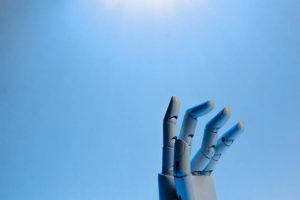No products in the cart.
AI’s Corporate Disruption: What Lies Ahead for Job Markets
Anthropic’s CEO warns of significant job market disruptions due to AI, predicting a 25% chance of corporate roles being affected. How can you prepare?
In a world where technology races ahead, the specter of artificial intelligence looms large over the job market. Recently, the CEO of Anthropic, a key player in AI development, issued a stark warning: there is a 25% chance that corporate roles will face disruption due to AI advancements. This isn’t just a corporate concern; it’s a bellwether for the future of work itself.
As we step into a new age of technology, the implications of AI are as profound as they are complex. Take, for example, the advertising industry, which is already witnessing a seismic shift. Brands are leveraging AI to craft targeted advertisements that feel almost psychic in their precision. But as the algorithms become more sophisticated, what happens to the jobs that once relied on human intuition and creativity?

Historically, technological revolutions have always come with a double-edged sword. The Industrial Revolution created jobs while simultaneously rendering others obsolete. Today, as AI algorithms crunch data at lightning speed, the stakes are higher. The potential for job displacement looms over sectors ranging from marketing to finance, where roles traditionally viewed as secure may now hang in the balance.
 Education
EducationEmpowering Futures: Lanjigarh Skills Training Centre’s Success in Job Placement
The Lanjigarh Skills Training Centre has achieved an impressive 93% job placement for its 21st Food & Beverage batch, showcasing…
To understand this disruption, it’s crucial to look at the context. AI has already begun to infiltrate various aspects of business operations. According to a report by McKinsey, up to 30% of tasks in 60% of jobs could be automated by 2030. This isn’t just a statistic; it’s a looming reality that many young professionals must grapple with as they enter the workforce.
This isn’t just a statistic; it’s a looming reality that many young professionals must grapple with as they enter the workforce.
The Human Element: Adaptation in the Age of AI
So, how can individuals prepare for this uncertain future? The answer lies in adaptability. As roles evolve, the demand for soft skills—creativity, emotional intelligence, and critical thinking—will grow. Companies will seek employees who can navigate the complexities that AI cannot. For instance, while an AI might analyze consumer data to suggest a marketing strategy, it lacks the human touch required to create a compelling narrative that resonates with audiences.
Consider the story of Sarah, a 26-year-old marketing manager who recently pivoted her career path. Faced with the rise of AI-driven analytics, she took the initiative to learn about the technology, becoming proficient in data analysis while also honing her storytelling skills. By integrating both technical and soft skills, Sarah not only secured her position but also positioned herself as an invaluable asset to her team. Her story illustrates the importance of continuous learning in an era of relentless change.
AI in the Workplace: A Double-Edged Sword
While AI presents challenges, it also offers unprecedented opportunities. Startups are springing up daily, leveraging AI to streamline operations, enhance customer experiences, and drive innovation. For instance, companies like ChatGPT and Jasper are changing how businesses communicate with their customers, providing tools that enhance productivity while also creating new job categories.
 Career Challenges
Career ChallengesGen Z Faces Job Market Freeze Amid AI Automation
Gen Z graduates are facing unprecedented hiring challenges in 2025 due to automation and a stagnant job market. This article…
Read More →However, this rapid evolution begs the question: are educational institutions keeping pace? Many schools and universities are now incorporating AI and technology into their curriculums. Yet, there remains a gap in preparing students for the specific skills required in a tech-driven job market. As a result, young professionals must take the initiative to seek out additional training or certifications that align with the demands of the evolving workplace.
Looking Forward: Embracing the AI Revolution
The future of work in an AI-dominated landscape will require a shift in our mindset. Rather than viewing AI purely as a threat, embracing it as a tool for innovation and growth could yield significant rewards. Organizations that foster a culture of lifelong learning and adaptability will not only survive but thrive in this new environment.
As a result, young professionals must take the initiative to seek out additional training or certifications that align with the demands of the evolving workplace.
In this context, the role of leadership becomes paramount. Leaders must not only understand the implications of AI but also guide their teams through the transition. They must cultivate an environment where employees feel empowered to upskill and innovate. After all, the most successful companies will be those that harness the power of AI while simultaneously investing in their most valuable asset: their people.
 Career Advice
Career Advice5 Highest Paying Jobs in India
Career Ahead Inflation, in our country, is at its peak, and money may not buy happiness, but it buys you…
Read More →As we navigate this uncharted territory, the key takeaway is clear: the job market may be shifting, but so too are the opportunities it presents. By staying informed, adapting to technological advancements, and embracing continuous learning, young professionals can position themselves at the forefront of a new era of work.











